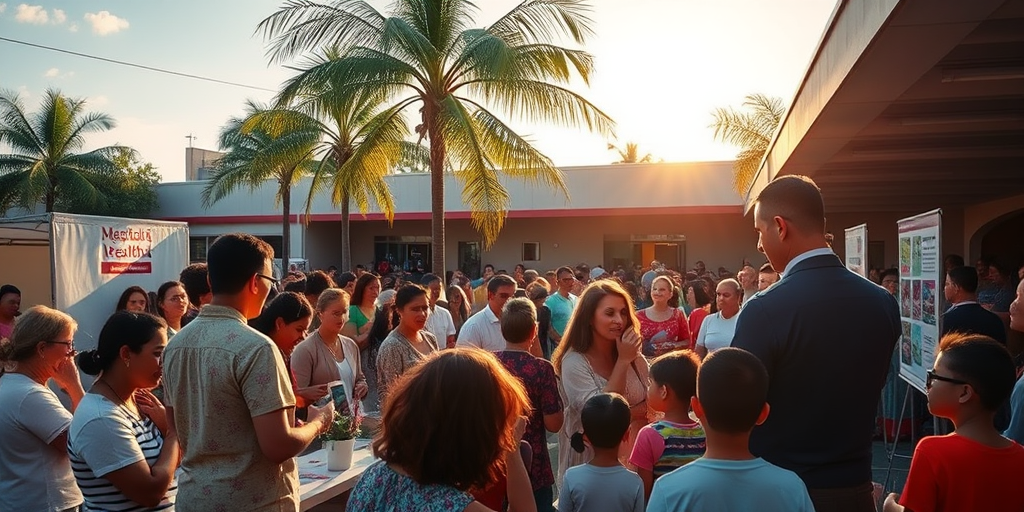Web Browsing Essentials: How JavaScript and Cookies Impact the Rio Grande Valley
In the digital age, the seamless functioning of web pages is a backbone for both personal and professional environments. In the Rio Grande Valley (RGV), where digital connectivity plays a crucial role in education, business, and social interaction, understanding the role of JavaScript and cookies can significantly influence user experience and privacy. This article delves into the significance of these web components and their implications for Valley residents.
Enhancing Web Usability
JavaScript is a programming language that enables dynamic content on websites. It is pivotal for running interactive features such as forms, multimedia, and animations on web pages, allowing them to operate smoothly. Websites without JavaScript can appear static and may not provide the interactive functionality users expect.
Cookies, on the other hand, are small data files stored on a user’s computer. These files facilitate various tasks, such as remembering login details, storing preferences, and, importantly, tracking browsing activity for personalized advertising. In the RGV, where small businesses increasingly rely on digital marketing, cookies help them target potential customers more effectively.
“JavaScript is like the electricity of the internet—it powers the engagement and functionality that users have come to expect,” explains Dr. Daniel Reyes, a computer science professor at the University of Texas Rio Grande Valley (UTRGV). “Without it, many websites would be as flat as a light bulb without power.”
Challenges of Disabling JavaScript and Cookies
Disabling JavaScript can lead to a diminished user experience, with potential issues such as broken links, missing images, or an inability to log into accounts. Similarly, turning off cookies can prevent websites from remembering user preferences, leading to repetitive logins and a lack of personalized content, which can inconvenience users in the Valley relying on efficient digital services for education and business.
However, while JavaScript enhances usability, it can expose users to potential security vulnerabilities, such as cross-site scripting attacks if not implemented correctly. Additionally, cookies raise privacy concerns due to their capability to track user behavior across sites, sparking debates about data collection and user consent, a hot topic among Valley residents concerned about digital privacy.
Maria Lopez, a Brownsville resident and digital rights advocate, shares, “While I understand the necessity of cookies for businesses, users need to have transparency and control over their data. Awareness and clear consent should be at the forefront of any digital interaction.”
Local Impact and Resources
For the RGV community, which increasingly depends on the internet for essential services, understanding the management of JavaScript and cookies is crucial. Users have the flexibility to adjust their JavaScript and cookie settings through browser preferences, enabling them to balance reliability and privacy considerations.
Many popular websites provide instructions for enabling JavaScript and cookies, helping users optimize their browsing settings to access features and content seamlessly. Local tech workshops, often held at community centers and colleges, offer courses that educate Valley residents on managing these settings for optimal web experiences.
Incorporating this digital literacy into public education could empower the RGV community further. “Educating our residents on managing their digital safety and privacy effectively can revolutionize our approach to technology,” suggests Linda Santos, an educator in McAllen.
Future Considerations
Moving forward, as the reliance on digital interaction deepens, the RGV may see increased demand for transparency in how data is collected and used. This could lead to proactive policy-making that ensures user privacy while fostering technological innovation.
The ongoing conversation around JavaScript and cookies signifies a larger narrative about balancing technological advancement with ethical considerations, a dialogue that the Valley is actively participating in. As the region continues to adapt to evolving technologies, these conversations will be crucial in shaping an inclusive digital future.
For RGV residents seeking more information, local libraries and technology hubs offer resources and workshops on internet literacy, equipping community members with the knowledge to navigate the web effectively and safely.
In conclusion, as the RGV embraces digital transformation, understanding the fundamental roles of JavaScript and cookies becomes essential. By balancing usability and privacy, the community can ensure that the digital experience is enriching and secure for all its residents, reinforcing the Valley’s commitment to progress and connectivity.







